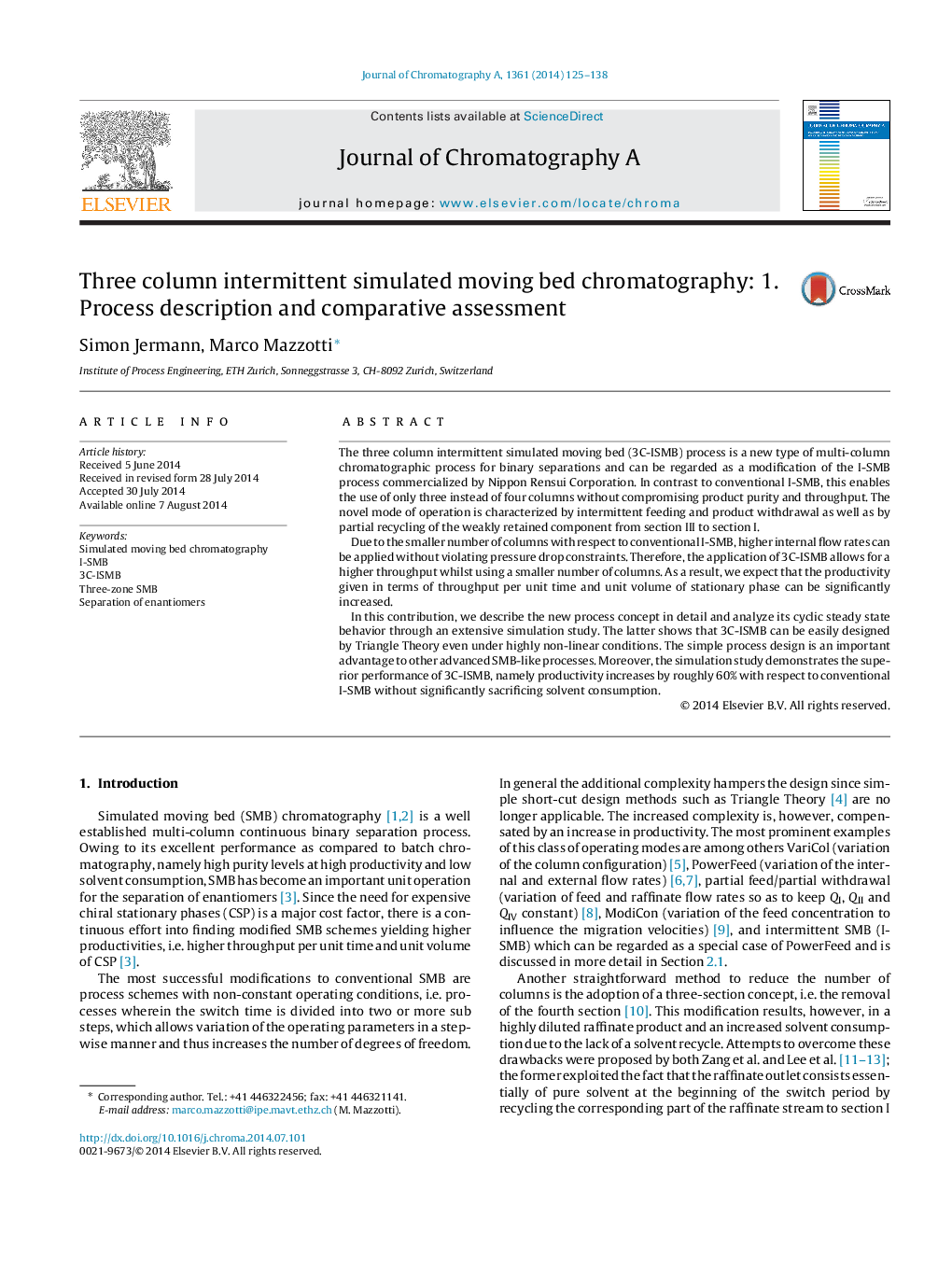| Article ID | Journal | Published Year | Pages | File Type |
|---|---|---|---|---|
| 1199294 | Journal of Chromatography A | 2014 | 14 Pages |
•A modified SMB process, termed three column intermittent (3C-ISMB) is presented.•The new 3C-ISMB combines the concepts of I-SMB and partial raffinate recycling.•The performances of 3C-ISMB and I-SMB are compared through detailed simulations.•3C-ISMB is shown to outperform I-SMB by 60% in terms of productivity.•3C-ISMB design is easily facilitated since Triangle Theory is applicable.
The three column intermittent simulated moving bed (3C-ISMB) process is a new type of multi-column chromatographic process for binary separations and can be regarded as a modification of the I-SMB process commercialized by Nippon Rensui Corporation. In contrast to conventional I-SMB, this enables the use of only three instead of four columns without compromising product purity and throughput. The novel mode of operation is characterized by intermittent feeding and product withdrawal as well as by partial recycling of the weakly retained component from section III to section I.Due to the smaller number of columns with respect to conventional I-SMB, higher internal flow rates can be applied without violating pressure drop constraints. Therefore, the application of 3C-ISMB allows for a higher throughput whilst using a smaller number of columns. As a result, we expect that the productivity given in terms of throughput per unit time and unit volume of stationary phase can be significantly increased.In this contribution, we describe the new process concept in detail and analyze its cyclic steady state behavior through an extensive simulation study. The latter shows that 3C-ISMB can be easily designed by Triangle Theory even under highly non-linear conditions. The simple process design is an important advantage to other advanced SMB-like processes. Moreover, the simulation study demonstrates the superior performance of 3C-ISMB, namely productivity increases by roughly 60% with respect to conventional I-SMB without significantly sacrificing solvent consumption.
